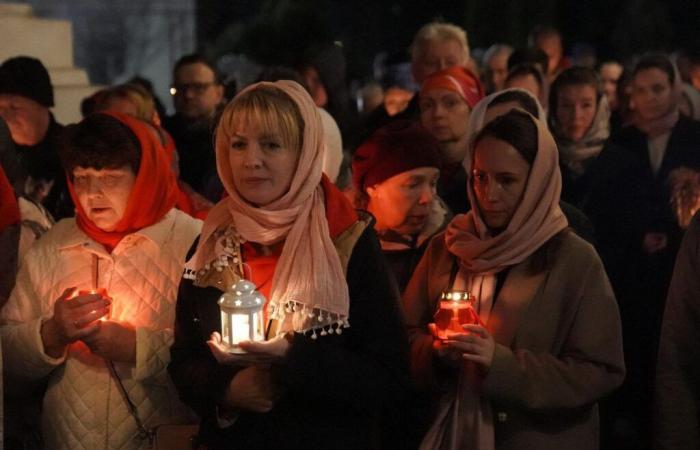This controversial bill is due to be debated in the coming weeks in the Duma, the Russian parliament. At the end of October, the New People party – supported by the presidential majority – tabled a proposal to revise the legislation aimed at putting an end to religious activities organized in homes or buildings, outside official places of worship. An initiative that its authors have officially justified by the desire to prevent potential “public order disturbances”, “conflicts” neighborhood – or to limit the risk of fire outbreaks.
At the heart of this country which recognizes four traditional religions – Orthodoxy, the vast majority, but also Islam, Buddhism and Judaism – and “where other faiths are otherwise tolerated, being looked at very closely”this approach seems “be part more broadly of a logic of strengthening state control of all of Russian society”, deciphers Antoine Nivière, professor at the University of Lorraine and specialist in the cultural and religious history of Russia. According to observers, Protestants – around 1% of the population, all tendencies combined – could find themselves particularly impacted by this new legislation, if it is well passed.
An “outcry”
But they are far from the only ones. In recent weeks, the proposal has aroused strong opposition from various senior religious leaders, including – a rare enough occurrence to be underlined – within the Moscow Patriarchate, although traditionally aligned with the Kremlin's positions. “The adoption of this bill will result in the closure of Orthodox house churches, lamented Abbess Xenia Chernega, head of the legal department of the Orthodox Church of Russia (EOR), in a press release in mid-December. The sacraments of communion, anointing and other religious rites performed by the clergy in residential premises at the request of citizens, including those who are seriously ill or dying, will also be threatened with banning. she noted again.
At the head of the Russian Evangelical Alliance, Baptist pastor Vitaly Vlasenko, for his part, publicly condemned an attempt to restrict religious freedom. “But religious and public organizations play a key role in maintaining the moral and ethical values of society. Their activities must be supported by state bodies,” he pleaded, before calling on the authorities to work in conjunction with the various religious authorities to find “reasonable solutions protecting the rights of believers and taking into account the interests of all citizens”.
A call to “revise” the bill
Is this bill likely to be passed as it stands? “In recent history, under Vladimir Putin, this is not the first time that the Russian state has attempted to further regulate religious practices. But nothing has been done there.” traces a Moscow Christian observer. In November 2019, three years after the restrictions already imposed by Yarovaya's laws in 2016, notably prohibiting the holding of various “missionary activities” in non-religious contexts, a similar initiative had already been judged “unconstitutional” by the Russian Constitutional Court. Although the New People party today appears to be favored by the parliamentary majority supported by Vladimir Putin, the unusual opposition of the EOR, which has called for a ” revision “ of the text, could influence the upcoming parliamentary debate.






